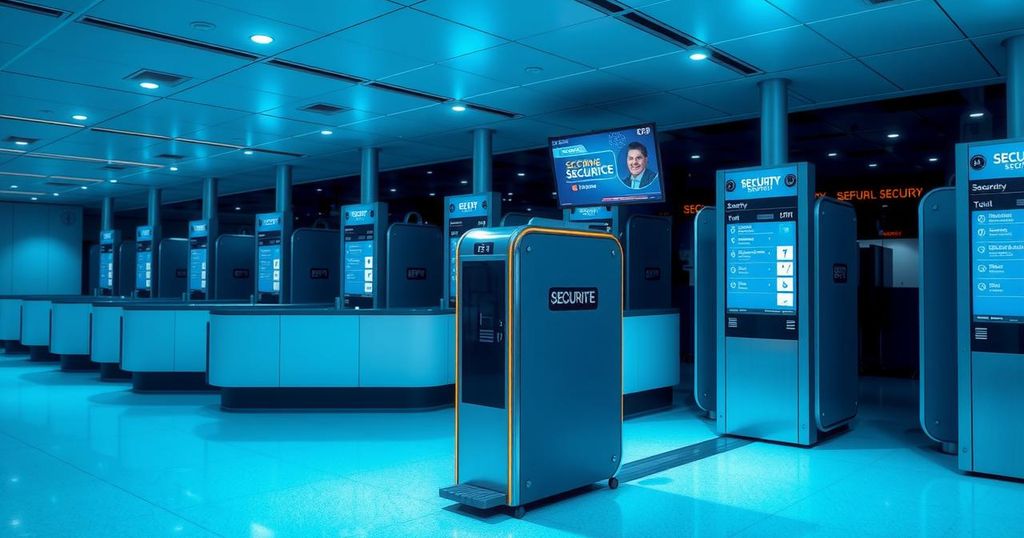This article discusses the partnerships and technological advancements necessary for enhancing biometric fraud prevention in identity verification. Highlights include a coalition in the UK addressing fraud through live data sharing, significant EU investments in digital identity, and initiatives in Armenia and Nigeria aimed at strengthening biometric IDs. Updates from NIST on differential privacy and responses from sectors like gambling and retail to biometric solutions are also examined.
Biometric fraud prevention critically relies on photo ID documents, which must continually evolve alongside emerging credentials. Notable advancements are highlighted in recent articles from Biometric Update, emphasizing the enhancement of remote trust technology. Governments like those contracting Idemia are tasked with producing IDs that are hard to counterfeit while implementing additional layers of security, as seen in a new coalition formed in the UK.
The EU is investing €1.3 billion into significant technologies from 2025 to 2027 for its Digital Europe Programme. This initiative aims to establish the EU Digital Identity Wallet and European Trust Infrastructure, underlining digital sovereignty as a priority. Additionally, collaboration with countries like India may bolster these objectives.
A coalition involving financial services, tech, and telecom firms in the UK is working to combat fraud by sharing live data. Insights from firms like TransUnion and BioCatch reveal the scope of identity and payment fraud, emphasizing the need for robust biometric software solutions, as noted by NEC.
The online gambling industry faces challenges balancing quick payouts with fraud prevention and compliance. Companies like Socure and Trustly are implementing biometric authentication and digital wallets to resolve these issues while others are expanding into regions like Brazil and LATAM amid new legislation aimed at enhancing trust.
The results of the Department of Homeland Security’s Remote Identity Validation Technology Demonstration (RIVTD) show varying maturity levels among fraud prevention techniques using ID verification, biometrics, and liveness detection. Findings serve to contextualize the state of remote onboarding processes.
Armenia is set to introduce biometric passports and ID cards via an Idemia-led consortium, aiming for a launch in 2026. The project entails developing the necessary infrastructure for ID issuance and acceptance.
Proposed legislation in Nigeria seeks to make digital IDs compulsory for citizens, revoking the existing NIMC Act. This law aims to streamline ID registration and requires approval from the House of Representatives and the President to be enacted.
Updates from NIST provide clearer guidelines on applying differential privacy (DP) to safeguard data, despite adoption hurdles linked to existing standards. DP involves introducing noise to datasets to ensure individual anonymity while compiling statistical data.
Asda has initiated a trial of live facial recognition technology in five UK stores to address rising theft and employee safety concerns, utilizing technology from FaiceTech. This system will match shoppers’ faces against a list of previous offenders.
FaceTec has succeeded in disqualifying a law firm representing Jumio over patent violation claims, highlighting the relevance of earlier work on intellectual property during the case.
Tunisia is rolling out various digital government services, including a digital ID, though currently only 200,000 users have registered. Civil society groups express concerns over transparency, but progress toward a digital transformation is underway.
Complementing South Africa’s G20 presidency, commentators argue for a focus on Digital Public Infrastructure (DPI) as a means to advance free trade and the digital economy across Africa.
New Zealand’s Digital Identity Services Trust Framework (DISTF) is launching, with officials providing insight into the accreditation process through a webinar aimed at fostering trust in cybersecurity and data privacy.
The Global Age Assurance Standards Summit in Amsterdam will take place soon, with Biometric Update covering the event. Professionals in the biometrics and digital identity sectors are encouraged to share relevant content for dissemination.
Recent advancements in biometrics emphasize the need for continuous enhancement in fraud prevention strategies, highlighting the role of reliable photo IDs. The establishment of coalitions, increased investments by the EU, and legislative introductions in various countries illustrate a global effort to bolster digital identity security. The evolution of practices and technologies remains fundamental to combatting fraud effectively as sectors adapt to emerging digital landscapes.
Original Source: www.biometricupdate.com





